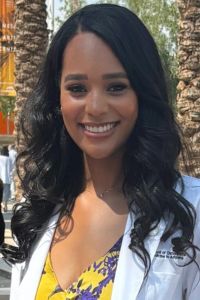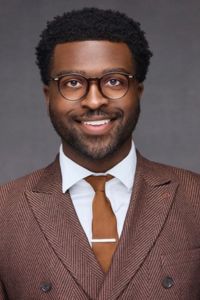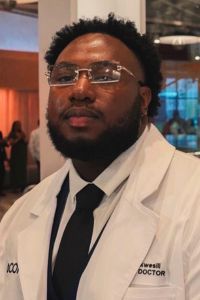Black History Month 2025: Community Spotlight
Published February 18, 2025
Inside OME
Black History Month is an opportunity to elevate the voices of African American individuals within the osteopathic medical education community. Each year we invite our community to share reflections about what Black History Month means to them and why they celebrate.
Join our upcoming AACOM Instagram takeover:
- Thursday, February 27: Baptist University College of Osteopathic Medicine
 I Am Black History: A Reflection on Legacy, Representation and the Road Ahead
I Am Black History: A Reflection on Legacy, Representation and the Road Ahead
By Logan Danner, OMS I, A.T. Still University-School of Osteopathic Medicine in Arizona
February has always been a time of reflection for me. Black History Month is more than a celebration—it is an acknowledgment of resilience, achievements and the sacrifices of those who came before us. It stands as both a testament to progress and a call to action, reminding us of the barriers that persist for Black communities today. Read more.
 Unmasking Strength: Black Men's Health and the Role of Future Physicians
Unmasking Strength: Black Men's Health and the Role of Future Physicians
By Samuel Ogunbode, OMS II, William Carey University College of Osteopathic Medicine
As an athlete, I figured one of the most valuable traits a person could have was the ability to take a hit, get hurt and still “shake it off.” The more competitive I became in sports, the more this mentality became ingrained in me, my teammates and my community of brothers. Nursing your wounds was almost a sign of weakness, and strength was displayed through stoicism and endurance. Read more.
 Resisting the Press(ure): Black Women, Natural Hair and Medical Professionalism
Resisting the Press(ure): Black Women, Natural Hair and Medical Professionalism
By Abigail Coachi, masters/post baccalaureate student, Touro College of Osteopathic Medicine Middletown
The stigma surrounding natural Black hair poses unique challenges for Black women in medicine, where professionalism and presentation are often judged harshly. The medical field is one that demands a high level of respectability, and for Black women, this respectability is often unfairly tied to conforming to Eurocentric beauty standards. Natural hairstyles such as afros, braids, locs or twists are frequently labeled as “unprofessional” or “unhygienic,” leaving many Black women in medicine to feel pressured to straighten or alter their natural hair to avoid scrutiny. Read more.
 From Barriers to Bridges: Progress Through Valued Perspectives
From Barriers to Bridges: Progress Through Valued Perspectives
By John Okwesili, OMS I, Orlando College of Osteopathic Medicine
In today’s world, with the end of DEI programs in the federal government, we must reflect on what diversity, equity and inclusion truly mean—especially for the African American community. DEI was never just a policy or initiative; it represented an effort to create opportunities, remove barriers and ensure that all individuals, regardless of background, had a fair chance to succeed. As we celebrate Black History Month, it is crucial to recognize that DEI and Black history are deeply intertwined. The very progress we honor this month was made possible by those who fought for inclusion, fairness and representation in every aspect of society. Read more.
 Black History Month: A Time for Reflection, Celebration and Action in Osteopathic Medicine
Black History Month: A Time for Reflection, Celebration and Action in Osteopathic Medicine
By Omofolarin ‘Folarin’ Debellotte
National Osteopathic Student Caucus Leadership
Representative, Student National Medical Association
Emergency Medicine Department, Weill Cornell Medicine - New York Presbyterian
Black History Month is an essential observance that highlights the significant contributions of individuals of African ancestry to the fields of medicine, education and society as a whole. It is a time to reflect on the enduring legacy of Black pioneers, celebrate their resilience and recognize the ongoing efforts needed to foster diversity, equity and inclusion in all areas of life, particularly in osteopathic medicine. Read more.
Honor and celebrate Black History Month and beyond by enjoying these books recommended by the osteopathic medical education community.
